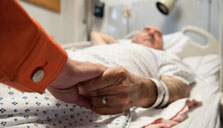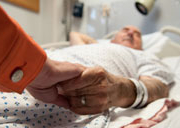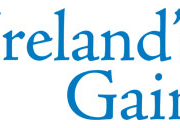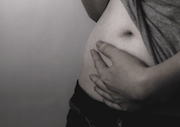A stark warning to UK doctors from Canada
 A recent legal ruling in Canada is a strong warning for British medical professionals who conscientiously object to involvement in abortion, or who would do so with assisted suicide if it were ever legalised.
A recent legal ruling in Canada is a strong warning for British medical professionals who conscientiously object to involvement in abortion, or who would do so with assisted suicide if it were ever legalised.
In 2018 the Ontario Superior Court ruled that healthcare professionals who refuse to carry out abortions (and euthanasia) must refer patients to doctors who will do so:
The ruling means that doctors will be required to do such things as sign abortion authorisation forms, provide preoperative care or refer patients to another doctor who will do any of these things, and more. Many clinicians quite understandably will equate these acts morally with actual participation in the procedures objected to.
The Ontario court’s decision comes in the wake of Canada’s decriminalisation of abortion in 1988 (R v Morgentaler). Since decriminalisation, abortion has been treated as a purely medical procedure under federal Canadian law.
The situation is Canada is now highly relevant for UK healthcare professionals, as a bill to decriminalise abortion in England and Wales has been debated and voted on in Parliament. Sponsored by Labour MP Diana Johnson, the bill on the decriminalisation of abortion passed its first reading in the House of Commons in October 2018. It failed to pass second reading and is unlikely to progress any further in this current session. However other attempts will be made to decriminalise abortion in England and Wales and Northern Ireland using different strategies. Like with Canada, decriminalisation here would treat abortion purely as a medical procedure and leave us with one of the most extreme abortion regimes anywhere.
Whilst the Johnson Bill retained the right to conscientious objection provided for under current British abortion law, subsequent attempts to remove or qualify that right could easily result in UK doctors being placed in the same position as those in Ontario.
It is important to note that the Ontario case merely confirmed what a respected medical professional body, the College of Physicians and Surgeons of Ontario (CPSO) had already stipulated as policy.
In 2015 the CPSO updated its Professional Obligations and Human Rights policy to read:
‘Where physicians are unwilling to provide certain elements of care for reasons of conscience or religion, an effective referral to another health-care provider must be provided to the patient.’ (my emphasis).
The policy stipulates serious penalties for those who do not comply.
That the Canadian medical body produced such a policy is noteworthy for the British medical community: the Royal College of General Practitioners has recently announced its support for the decriminalisation of abortion.
In Ontario, five doctors and three organisations, including the Christian Medical and Dental Society of Canada launched a legal case against the CPSO in order to challenge the referral policy
The plaintiffs told the Ontario Superior Court that the CPSO policy breached doctors’ rights to freedom of religion and conscience under the Canadian Charter of Rights and Freedoms, and that referral was tantamount to being forced to participate in the procedures.
However, in its highly concerning ruling the Court stated: ‘The applicants do not have a common law right or a property right to practise medicine, much less a constitutionally protected right.’
‘Those who enjoy the benefits of a licence to practise a regulated profession must expect to be subject to regulatory requirements that focus on the public interest, rather than the interests of the professionals themselves.’
Admitting there was a breach to doctors’ rights, the Ontario court said this was justified, as the cost to doctors, who do not have to work in areas where such questions arise, is less than the benefits to the public. If doctors were allowed to exercise their Charter conscience rights in this way, the court said, ‘a real risk of a deprivation of equitable access to health care’ would be established.
The plaintiffs determined to take the case to the Supreme Court of Canada in appealing the Ontario decision. The Court heard the appeal in January 2019. At the time of writing, the Canadian Supreme Court is considering its ruling and a decision is awaited. Although Canada is different in several respects, it has a common law jurisdiction and many arguments deployed there are brought in over here. Hence the Canadian situation presents a stark warning to UK doctors, let alone nurses and midwives who already have fewer protections for freedom of conscience here.
At a time when medical professional bodies here – and in Canada – are pushing an agenda of abortion and euthanasia, there remain those who object to this and who are pushing back in favour of life and care, not killing.
Karen Faulkner is a Christian writer and British law graduate. She has a Master’s degree in Human Rights and Transitional Justice.












Leave a Reply
Want to join the discussion?Feel free to contribute!